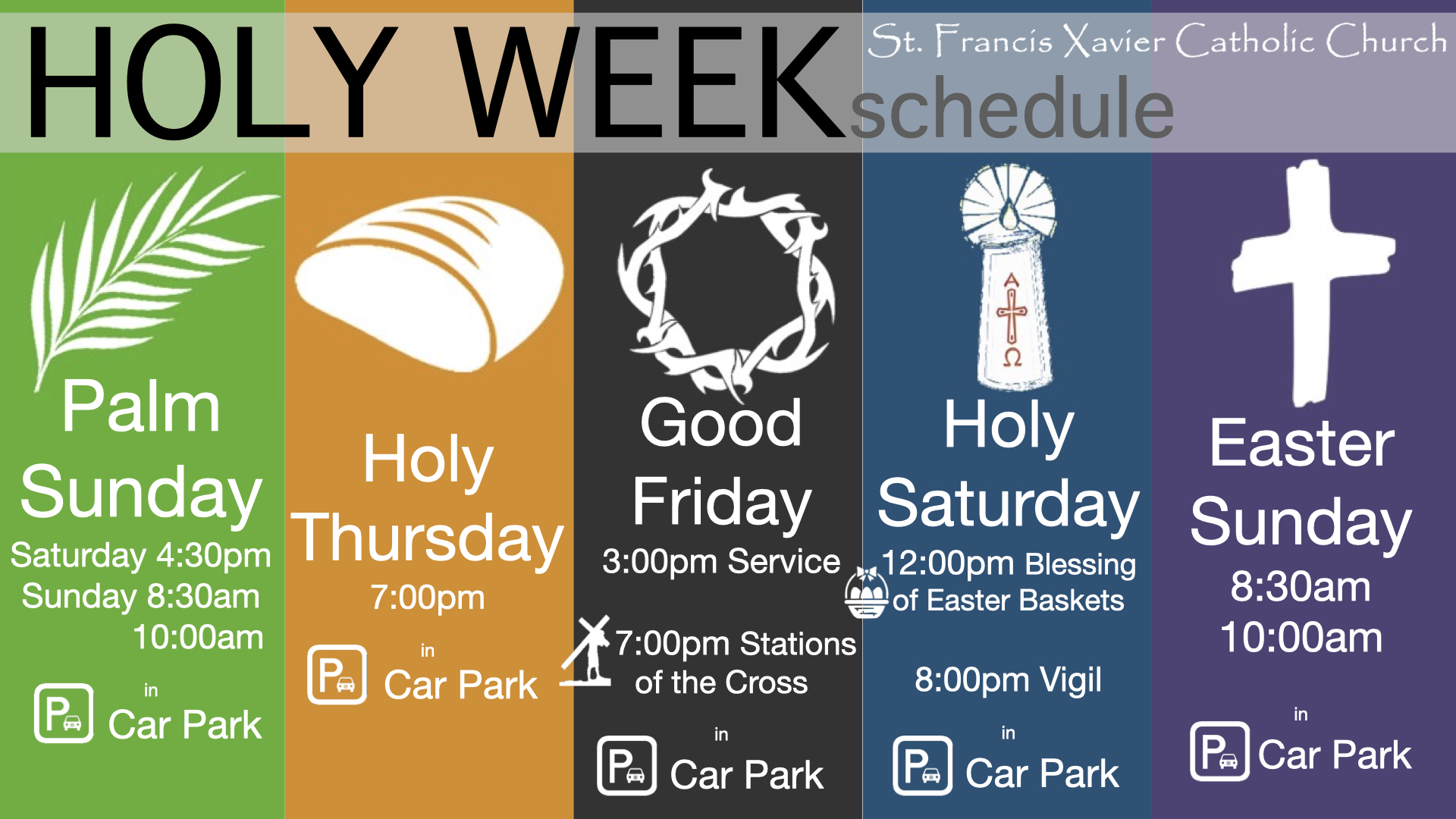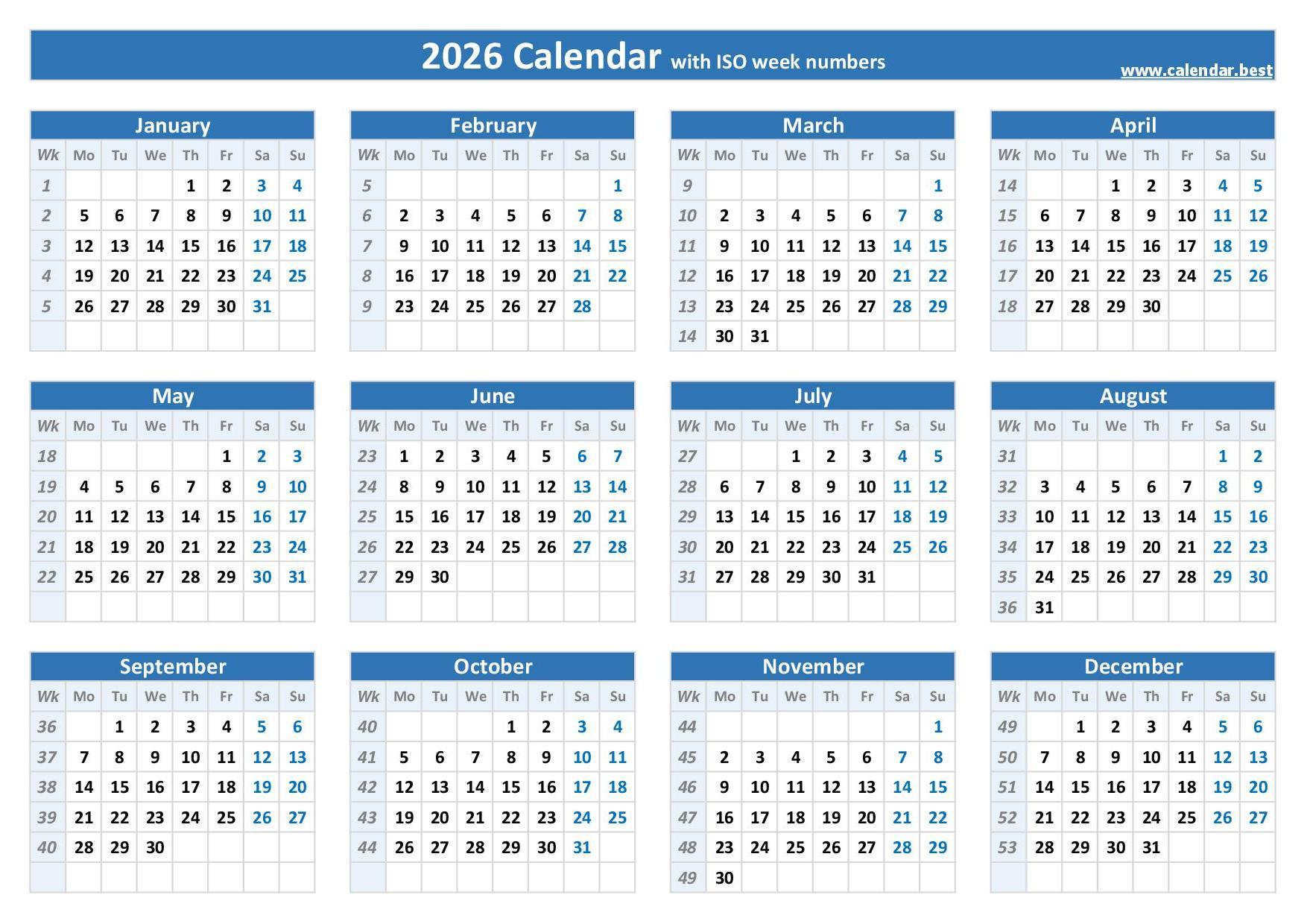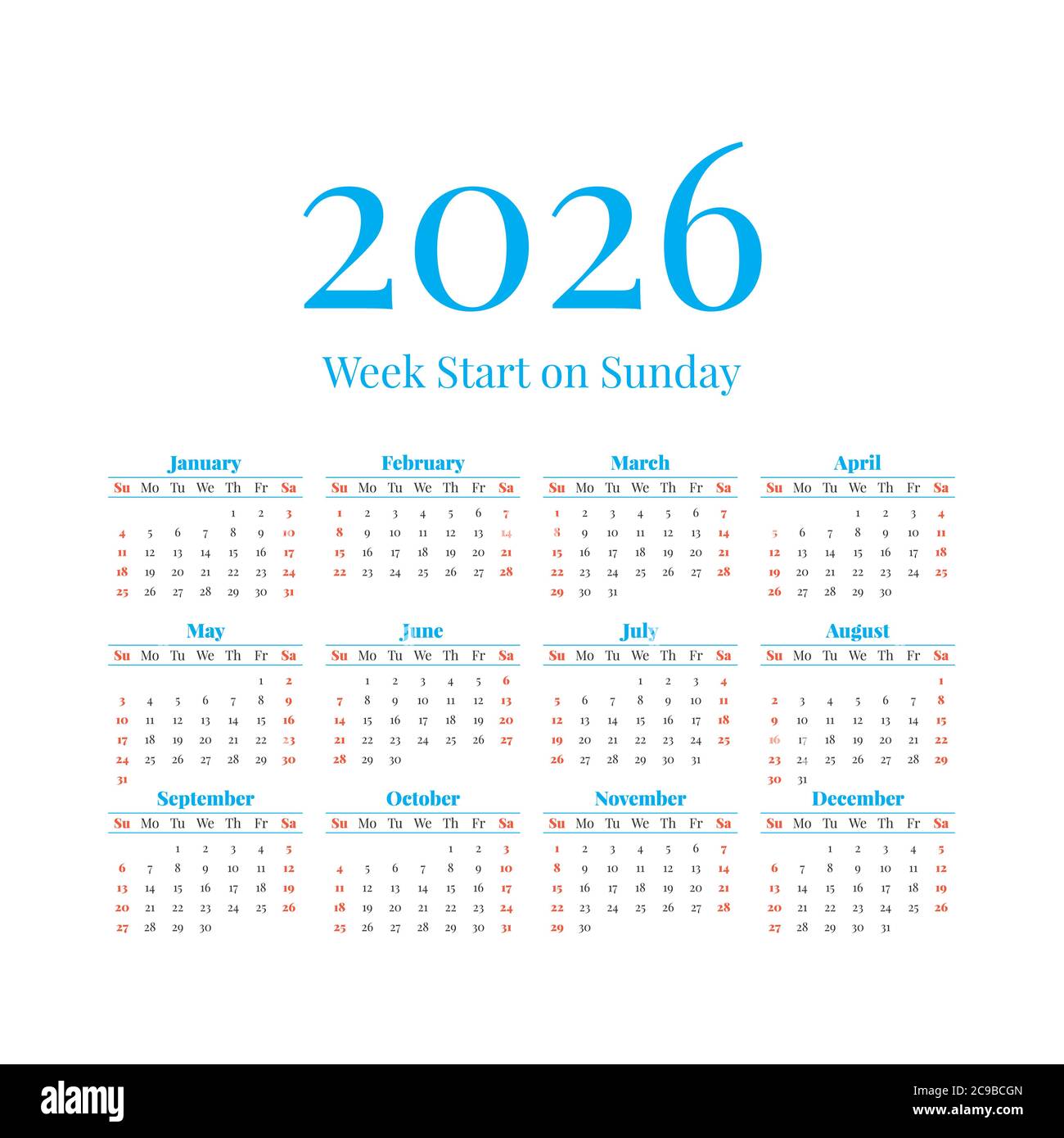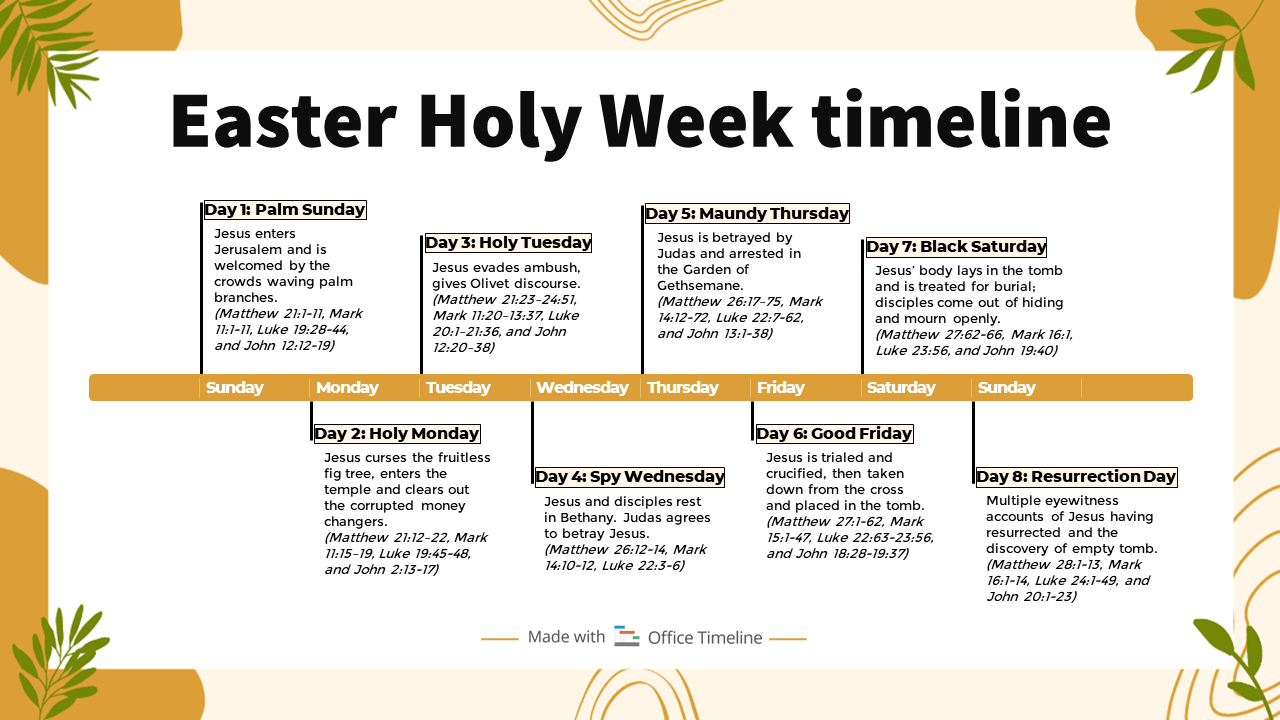
Introduction
Holy Week 2026 dates calendar represents a significant subject within its field, encompassing a range of practices, traditions, and applications that shape daily life and broader cultural and professional landscapes. This period, deeply rooted in Christian faith, holds profound spiritual, historical, and communal significance for millions across the globe. Understanding the Holy Week 2026 dates calendar provides clarity about its background, its present relevance, and the way it continues to influence various aspects of society, from religious observance to cultural holidays and personal reflection. Its annual recurrence offers a consistent rhythm for spiritual contemplation and communal solidarity, making the precise dates a crucial point of reference for planning and participation.
Definition and Origin of Holy Week 2026 Dates Calendar
Holy Week is the most sacred period in the Christian liturgical calendar, marking the final week of Lent and culminating in Easter Sunday. It commemorates the Passion of Jesus Christ, beginning with His triumphal entry into Jerusalem and concluding with His resurrection. The observances during this week trace back to the earliest centuries of Christianity, evolving from simple commemorations to elaborate rituals that reflect the profound theological meaning of Christ’s sacrifice and victory over death.
For the year 2026, the Holy Week dates calendar is determined by the date of Easter Sunday, which falls on April 5th. This calculation follows the Western Christian method, which places Easter on the first Sunday after the first full moon following the vernal equinox. Consequently, the key dates for Holy Week 2026 are as follows:
- Palm Sunday: March 29, 2026. This day commemorates Jesus’s entry into Jerusalem, where He was greeted by crowds waving palm branches. Churches worldwide hold special services, often including the blessing and distribution of palms, and processions.
- Holy Monday: March 30, 2026. This day, along with Holy Tuesday and Holy Wednesday, often focuses on various events from Jesus’s final days, including His teachings and prophecies.
- Holy Tuesday: March 31, 2026. Traditional readings and reflections during this time include parables and discussions of Jesus’s authority.
- Holy Wednesday (Spy Wednesday): April 1, 2026. This day often recalls Judas Iscariot’s betrayal of Jesus.
- Maundy Thursday (Holy Thursday): April 2, 2026. This day commemorates the Last Supper, where Jesus instituted the Eucharist and washed the feet of His disciples. Many churches hold evening services that include foot-washing ceremonies and the stripping of the altar.
- Good Friday: April 3, 2026. This is a solemn day commemorating the crucifixion of Jesus Christ and His death at Calvary. Services typically involve reflections on the Passion, veneration of the Cross, and a somber atmosphere.
- Holy Saturday: April 4, 2026. This day marks the period when Jesus’s body lay in the tomb. It is a day of quiet anticipation, leading up to the Easter Vigil, which is often held after sundown, celebrating the resurrection.
- Easter Sunday: April 5, 2026. The culmination of Holy Week, Easter Sunday celebrates the resurrection of Jesus Christ from the dead, marking the triumph of life over death and the foundation of Christian faith. It is a day of great joy and celebration.
The precise observance of these days varies across Christian denominations, but the core narrative and spiritual focus remain consistent. Understanding this timeline is essential for anyone wishing to engage with or comprehend the significance of this sacred period.
Importance of Holy Week 2026 Dates Calendar Today
The importance of the Holy Week 2026 dates calendar extends far beyond mere chronological reference; it underpins a profound spiritual and cultural framework that resonates deeply in contemporary society. For billions of Christians, this period is the cornerstone of their faith, offering an annual opportunity for deep spiritual reflection, repentance, and renewal. It is a time to remember the foundational events of Christianity, to contemplate the themes of sacrifice, redemption, and resurrection, and to reaffirm personal commitment to spiritual principles.
Culturally, the observances profoundly influence daily life in many parts of the world. In numerous countries, Good Friday and Easter Monday are public holidays, allowing for family gatherings, travel, and participation in religious services. This societal recognition highlights the enduring impact of Christian traditions on national calendars and collective routines. Communities often come alive with special processions, passion plays, and musical performances that depict the events of Christ’s Passion, drawing both believers and those interested in cultural heritage. These events serve to preserve historical narratives and foster a sense of shared identity and tradition.
Furthermore, the period holds significant educational value. It provides a structured opportunity for religious instruction, particularly for younger generations, to learn about the core tenets of Christianity. Through stories, rituals, and communal participation, individuals gain a deeper understanding of the theological concepts that shape their faith and cultural background. The themes explored during this week—love, forgiveness, suffering, hope, and new life—are universal and continue to offer guidance and inspiration in a complex world, making the understanding of its timing and significance crucial for personal and communal engagement.
Benefits of Holy Week 20C26 Dates Calendar
Engaging with the Holy Week 2026 dates calendar offers a multitude of benefits, both for individuals and communities. These advantages span spiritual, communal, cultural, and personal dimensions, reinforcing the enduring value of this sacred period.
Firstly, the primary benefit is spiritual growth and reflection. For believers, this week provides a dedicated time for introspection, prayer, and contemplation of the profound mysteries of faith. It encourages a deeper connection with the divine, fostering a sense of spiritual renewal and purpose. The structured observances, from Palm Sunday to Easter, guide participants through a narrative of sacrifice and triumph, inviting personal transformation.
Secondly, it promotes community bonding and shared experience. Collective participation in services, processions, and charitable acts strengthens social ties and reinforces a sense of belonging. Churches and religious organizations often become hubs of activity, bringing people together in shared worship and fellowship, which can combat feelings of isolation and foster mutual support.
Thirdly, the observance contributes to the preservation of cultural heritage. Many traditions associated with Holy Week have been passed down through generations, embodying centuries of history, art, music, and storytelling. By participating, individuals help keep these rich cultural expressions alive, ensuring their continuity for future generations and maintaining a connection to the past.
Fourthly, it provides an opportunity for education and understanding of Christian faith. For those new to Christianity or seeking to deepen their knowledge, the structured events of Holy Week offer a comprehensive immersion into its central narratives and theological concepts. It serves as an annual educational curriculum, making complex spiritual ideas accessible through tangible rituals and communal practices.
Finally, for many, the period offers a time for rest, family, and personal contemplation. In regions where public holidays are observed, it provides a break from daily routines, allowing individuals to spend quality time with loved ones, engage in personal reflection, or simply rejuvenate, all within a context imbued with spiritual significance. These benefits collectively underscore why understanding and observing the Holy Week 2026 dates calendar remains profoundly impactful.
Applications of Holy Week 2026 Dates Calendar
The practical applications stemming from the Holy Week 2026 dates calendar are diverse, influencing various aspects of religious practice, personal devotion, family life, and community engagement. Its schedule dictates a range of activities that shape the spiritual and social landscape during this crucial time.
One primary application is in religious observances. Churches and congregations worldwide utilize the specific dates to plan their liturgical schedules, including special Masses, services, prayer vigils, and processions. These events are meticulously organized to align with the narrative of Christ’s Passion, from the joyous entry on Palm Sunday to the solemnity of Good Friday and the celebratory Easter Vigil. Clergy and church staff rely on the calendar to prepare sermons, rituals, and communal gatherings that guide their congregants through the spiritual journey of the week.
Beyond formal religious settings, the dates inform personal devotion. Individuals use the calendar to structure their private spiritual practices, such as daily prayer, fasting, reading scripture, and meditation. Many choose to engage in acts of charity or self-denial during this period, reflecting on the themes of sacrifice and service. The progression of days offers a framework for personal reflection on one’s faith and life choices.
Family traditions also heavily rely on the Holy Week 2026 dates calendar. Families plan specific meals, gatherings, and activities around the key days. For instance, the Last Supper is often commemorated with special family dinners on Maundy Thursday, while Easter Sunday is a day for celebratory feasts and family reunions. These traditions reinforce familial bonds and transmit religious and cultural values across generations.
In a broader sense, the calendar impacts community events and public life. In many countries, the dates determine public holidays, affecting work schedules, school breaks, and travel plans. Local communities may organize passion plays, concerts, or charitable initiatives that coincide with the week, drawing participation from both religious and secular residents. The cultural significance of the period often transcends purely religious boundaries, becoming a time of collective pause and reflection for society at large. Thus, the Holy Week 2026 dates calendar serves as a practical guide for a wide array of spiritual, social, and cultural activities.
Challenges and Future of Holy Week 2026 Dates Calendar
Despite its profound significance, the observance of the Holy Week 2026 dates calendar, and Holy Week in general, faces several challenges in the contemporary world. These challenges, while significant, also pave the way for innovative adaptations and ensure its continued relevance into the future.
One major challenge is secularization. In many Western societies, declining church attendance and a growing secular worldview mean that the religious significance of Holy Week is less universally understood or observed. For an increasing number of people, the period may simply represent a public holiday rather than a sacred time for spiritual reflection. This shift can dilute the collective spiritual impact and make it harder for religious institutions to engage wider audiences.
Another challenge is the commercialization of holidays. Easter, in particular, has become associated with consumerism, with emphasis often placed on chocolate eggs, bunnies, and festive decorations rather than the core religious narrative. This commercial aspect can overshadow the spiritual solemnity and theological depth of the week, potentially diverting focus from its true meaning.
Maintaining traditional practices in modern society also presents difficulties. Busy lifestyles, geographical mobility, and the decline of intergenerational knowledge transfer can make it challenging for families and communities to uphold long-standing customs and rituals. Younger generations may find traditional observances less engaging without contextual understanding or adaptation.
Looking to the future, the Holy Week 2026 dates calendar will likely see continued adaptability of traditions. Religious institutions are increasingly leveraging digital platforms for outreach, offering online services, reflections, and educational resources to engage a broader, geographically dispersed audience. This digital transformation can help overcome barriers of distance and accessibility, allowing more people to participate in observances.
Furthermore, there is a growing emphasis on interfaith dialogue and ecumenical understanding. While Holy Week is distinctly Christian, its universal themes of sacrifice, redemption, and hope resonate across different belief systems. Future observances may see increased opportunities for shared reflection on these universal values, fostering greater understanding and respect among diverse communities. The continued relevance of the Holy Week 2026 dates calendar will depend on its ability to navigate these challenges through innovation, education, and a renewed focus on its core spiritual message, ensuring it remains a central element of progress and relevance into the future.
FAQs about Holy Week 2026 Dates Calendar
Q1: What is Holy Week 2026 dates calendar?
A1: Holy Week 2026 refers to the final week of Lent in the Christian liturgical calendar, commemorating the Passion of Jesus Christ, from His entry into Jerusalem to His resurrection. In 2026, it begins on Palm Sunday, March 29th, and culminates on Easter Sunday, April 5th. Key dates include Maundy Thursday (April 2nd) and Good Friday (April 3rd).
Q2: Why is Holy Week 2026 dates calendar important?
A2: This period is profoundly important for Christians as it marks the central events of their faith: Christ’s sacrifice and resurrection, which offer redemption and hope. It provides a crucial annual opportunity for spiritual reflection, renewal, and a deeper connection to core Christian beliefs. Culturally, it influences public holidays and community traditions globally.
Q3: What are the main benefits of Holy Week 2026 dates calendar?
A3: The main benefits include fostering spiritual growth and personal reflection, strengthening community bonds through shared worship and traditions, preserving rich cultural heritage, and offering an educational opportunity to understand the foundational narratives of Christianity. It also provides a dedicated time for rest and family for many.
Q4: How can Holy Week 2026 dates calendar be applied in daily life?
A4: It can be applied through active participation in religious observances like church services and processions, engaging in personal devotion such as prayer, fasting, and scripture reading, upholding family traditions like special meals and gatherings, and participating in community events or acts of charity. The dates serve as a guide for structuring these activities.
Q5: What challenges are associated with Holy Week 2026 dates calendar?
A5: Challenges include the impact of secularization, which can diminish the religious significance for some; the commercialization of holidays, which may overshadow spiritual meaning; and difficulties in maintaining traditional practices amidst modern lifestyles. Adapting to these changes through digital outreach and educational efforts is key to its future.
Tips for Holy Week 2026 Dates Calendar
Engaging meaningfully with the Holy Week 2026 dates calendar can enrich spiritual life and deepen cultural understanding. Following these tips can help individuals and communities make the most of this significant period.
Understand the fundamentals. Before the week begins, take time to learn about the significance of each day, from Palm Sunday to Easter. Familiarize oneself with the biblical narratives and theological meanings associated with Maundy Thursday, Good Friday, and Holy Saturday. This foundational knowledge enhances participation and makes observances more meaningful. Resources such as church websites, religious texts, and educational materials can provide valuable insights.
Focus on practical use. Translate understanding into action. Attend local church services, participate in community processions, or engage in personal spiritual practices like prayer, meditation, or reading devotional materials. For those who observe fasting or abstinence, plan meals accordingly. Consider acts of charity or service that align with the themes of compassion and sacrifice. The practical application of these principles deepens the experience beyond mere intellectual comprehension.
Stay updated on new trends or research. While Holy Week traditions are ancient, the ways people engage with them can evolve. Stay informed about local church schedules, community events, and any online resources or virtual observances offered. Many religious institutions now provide digital content, which can be particularly helpful for those unable to attend in-person services or seeking supplementary reflections. Understanding contemporary interpretations or scholarly insights can also add depth to one’s appreciation.
Avoid common mistakes. One common pitfall is allowing the secular aspects of Easter (e.g., commercialization) to overshadow the spiritual core of Holy Week. Another is treating the week as merely a set of historical events rather than a living, transformative experience. Avoid last-minute planning that might prevent full participation. Instead, approach the week with intentionality and a focus on its profound spiritual and cultural significance.
Adopt a long-term approach. The lessons and reflections from Holy Week are not meant to be confined to a single week but integrated into one’s ongoing spiritual journey. Consider how the themes of sacrifice, redemption, hope, and new life can inform daily decisions and attitudes throughout the year. Regular spiritual practice, inspired by the intensity of Holy Week, can foster sustained personal growth and a deeper connection to faith.
Conclusion about Holy Week 2026 Dates Calendar
The Holy Week 2026 dates calendar continues to represent a cornerstone of Christian faith and a significant cultural phenomenon across the globe. Its annual observance provides a vital framework for spiritual reflection, communal solidarity, and the perpetuation of deeply rooted traditions. From the triumphal entry on Palm Sunday to the joyous celebration of Easter, the events commemorated during this sacred period offer profound lessons in sacrifice, redemption, and hope, influencing countless lives on a personal, cultural, and even professional level.
Understanding the specific dates for 2026—beginning March 29th and culminating on April 5th—is essential for individuals and communities planning their engagement with these observances. While challenges such as secularization and commercialization persist, the enduring benefits of Holy Week, including spiritual growth, community building, and cultural preservation, far outweigh them. Through adaptability, education, and a continued focus on its core spiritual message, the Holy Week 2026 dates calendar will undoubtedly remain a central element of progress and relevance, guiding millions through a journey of faith and renewal into the future.






Leave a Reply